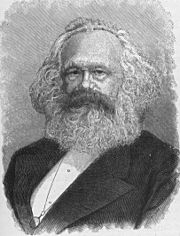A Minimalist Court?


Over at the Chicago Faculty of Law Blog Cass Sunstein has this interesting post about a minimalist court. He also has this Op-Ed piece in the LA Times. The impetus for Sunstein’s posts was a recent commencement speech by Chief Justice Roberts. A webcast of Roberts’s speech (given to Georgetown University Law Center) is available online here. [it's an excellent speech, both funny and insightful]
Roberts argues that the rule of law is served by unanimous or near-unanimous court opinions. He believes it is important that there be more consensus within the Court. Sunstein notes that Roberts’s position transcends the typical ideological lines that occupy the debates about minimalism. Sunstein characterises these ideological divisions as follows:
"One strand of that jurisprudence, associated with justices Antonin Scalia and Hugo Black, prizes broad, ambitious rulings on the ground that they give the clearest signals to lower courts, potential litigants and the nation as a whole. Scalia has long attacked minimalism on the ground that a court that resolves "one case at a time" leaves far too much doubt. If the court focuses on particular facts, people won't know, for example, when affirmative-action programs are permissible, when government can interfere with private choices and what, exactly, the president may or may not do to protect the nation.
The competing strand, associated with Frankfurter and Justice Sandra Day O'Connor, prizes narrow rulings. O'Connor emphasized the need for humility, which would require the justices to acknowledge what they do not know and to leave many questions undecided".
I find this question about judicial minimalism intriguing because it raises fundamental questions about the role of judicial review in a liberal democracy. I am a proponent of what is called the “dialogical model” of judicial review. [See, for example, Peter Hogg and Allison Bushell ‘The Charter Dialogue Between Courts and Legislatures’, Osgoode Hall Law Journal, Vol. 35, No. 1, 1997, pp. 75-124.] My own contribution to these debates is made in my forthcoming paper “Civic Liberalism and the “Dialogical Model” of Judicial Review”. This paper outlines some of the philosophical underpinnings of the dialogical model. And I thought I would tease out some of the insights from that paper and consider what they might prescribe about judicial minimalism.
I think the dialogical model of judicial review is best characterised as being premised on a “virtue-oriented” conception of justice and democracy. Such a theory prescribes that we strive for the mean between judicial and legislative supremacy. Furthermore, such a virtue-oriented account can make explicit why it is important to have the input of both legislative bodies and Courts when it comes to the issue of regulating constitutional rights. To make a long story short, there are a number of important reasons why we should have input from a deliberative body like the Supreme Court. One reason is their legal expertise. But another important reason is the fact that they are politically insulated in a way that legislatures are not. Thus judges have an important contribution to play in terms of exercising public reason. They can bring to the fore issues or arguments that legislatures might not seriously entertain because doing so would cost (or risk costing) law-makers votes.
When we consider the issue of dissenting Court opinions, I think such opinions can contribute a lot to the vitality of a liberal democracy. So I think Roberts’s emphasis on the importance of the rule of law needs to be balanced against these other considerations. Dissenting opinions might bring to the fore important considerations that legislatures (and the majority Court, the public, etc.) might have to consider when fashioning legislation in the future (on related issues). The concern for “rule of law” must be tempered by the deliberating benefits of robust minority decisions and dissent. Minority decisions might stimulate informed public debate on an otherwise neglected issue or lead to more attentive law-making.
But a virtue-oriented approach to judicial review will also embrace what Sandra Day O’Connor takes to be the main virtue of minimalism- *humility*. Respect for democracy means that Courts should recognize that they are only one of a number of important deliberative bodies in liberal democracies. And in many cases judges are not well positioned to make certain kinds of decisions. Politically insulated judges should not, for example, be given the power to make important decisions about the allocation of scarce public funds. This is one reason why I oppose judicial supremacy.
So in the end I guess a virtue theorist will have to say that there are both pros and cons with judicial minimalism and that context is everything. Sometimes the Court should adopt a minimalist position. Doing so may be required by humility, respect for the rule of law, democracy, etc. But other times judges may have to contravene this minimalism. This might be necessary if law-makers fail to fully engage in the debates at stake with particular legislation. When law-makers fail to have the courage to tackle contentious social issues the Court may have to take on this role. So context is everything. And a virtuous judiciary will know when a minimalist or more robust court opinion is required and justified.
Cheers,
Colin
























